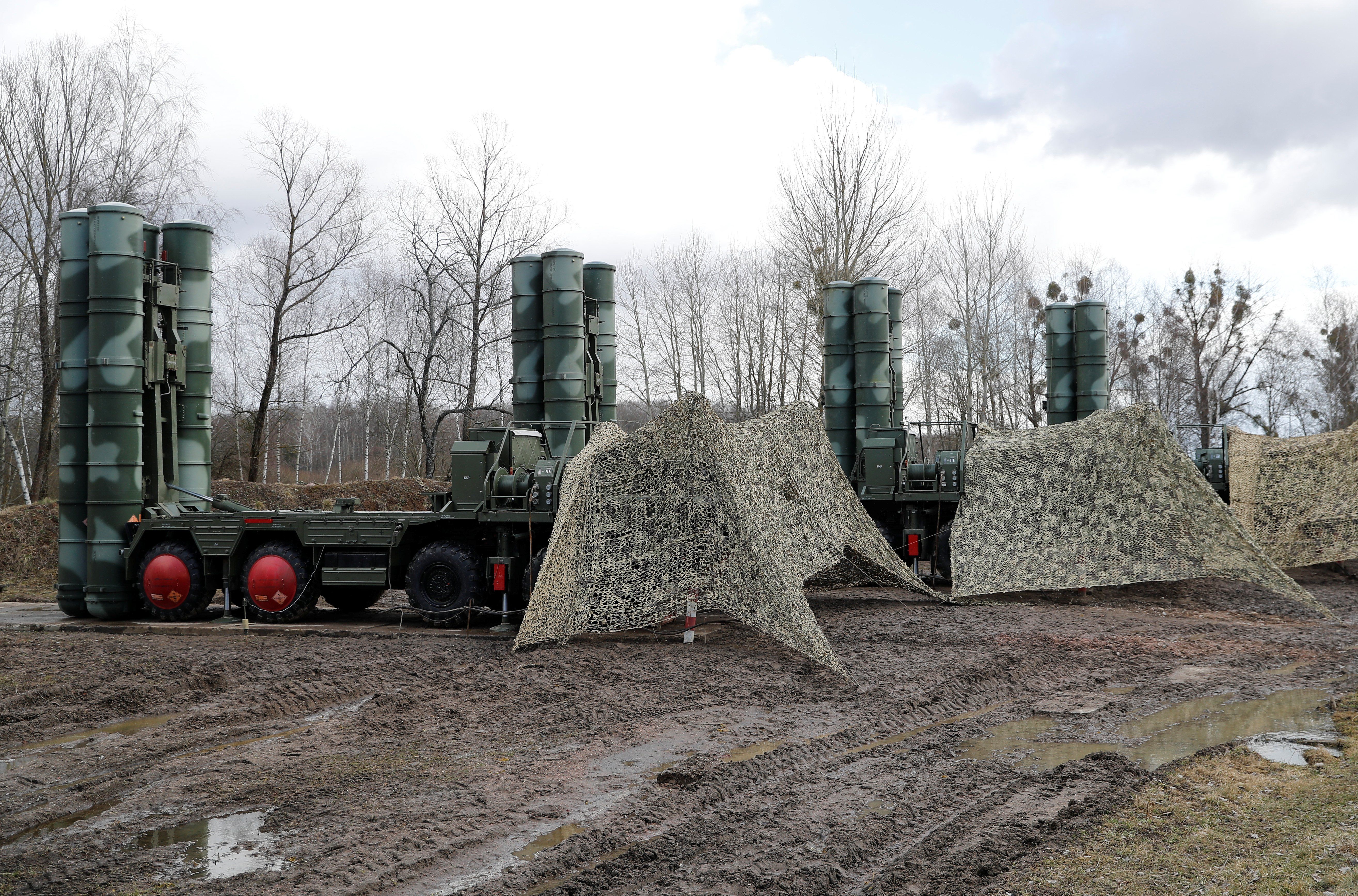Turkey’s Purchase of the S-400 System: Prospects and Consequences

On 25 July, Erdoğan announced Turkey would buy the Russia-made S-400 air and missile defence system. According to pro-government press in Turkey, the deal is worth $2.5 billion and encompasses the transfer of technology and know-how (two batteries are going to be produced in Turkey). Completion of the agreement would be a step towards Turkey’s goals in the development of the T-Loramids (Turkish Long-range Air and Missile Defence System) programme. The first stage of this programme focused on acquiring an air and missile defence system, and the last on the domestic production of one.
Turkey came quite close to purchasing the system from abroad when, in 2013, the Chinese company CPMIEC won a tender to supply it. The agreement, however, was annulled two years later, as a result of, among other things, pressure exerted by Turkey’s NATO allies, who were worried that the deal would give China access to Alliance technology. The tender process has since been re-opened, and Erdoğan’s last announcement may suggest that it could soon be completed. The Russian government has not yet commented on the declaration, but President Vladimir Putin admitted in June that he had been speaking about the S-400 with his Turkish counterpart, and announced Russia’s readiness to sell the system.
Turkey’s Motivations
Turkey has been determined to acquire an air and missile defence system for a long time. This is primarily a result of an evolution of threats to the country’s security, in principle in its own neighbourhood. Turkey’s decision-makers’ have become increasingly worried about the rocket arsenals of Syria, Iran and Armenia. Their conviction about the rocket threat was strengthened by the war between Russia and Georgia, and the Syrian civil war (rockets were used extensively in both conflicts). Moreover, NATO’s missile defence system does not cover the entire Turkish territory. This was why, at the end of 2012 and at the request of the Turkish government, the Alliance decided to locate Patriot missiles in southern Turkey (Italian and Spanish batteries are currently located there). Having its own missile defence system is perceived by the Turkish authorities as a sine qua non of effective deterrence. It would also be a factor enhancing the state’s prestige and its influence in the Middle East.
Those plans fit the Turkish arms industry’s development concept. Its aim is to increase the share of domestic production in the defence sector so that, by 2023, the sector will be self-sufficient (it is estimated that domestic suppliers currently meet 70% of military demand for arms). This is why Turkey attaches such importance to technology transfer in arms tenders. It was also the main reason why Western companies have been failing in their efforts to win Turkish air and missile defence tenders (the U.S. Raytheon and French-Italian consortium Eurosam have both taken part, but unsuccessfully). Projects to increase the share of domestic arms production for defence sector also fit the government’s broader “2023 Vision,” the main goal of which is to make the Turkish economy one of the 10 biggest in the world. Having a robust domestic arms industry that not only meets Turkish military demand but is also an important source of state income is perceived as a factor that may contribute to reaching this goal. It is the intention of the government that Turkish arms exports should reach $25 billion by 2023 (in 2016, the value was around $1.5 billion).
In Turkey, there is also speculation that the additional motivation for acquiring an air and missile defence system is the poor condition of the Turkish Air Forces (TAF) since the failed coup in 2016. Purges have stripped around 50% of pilots from their posts, and it is estimated that rebuilding the TAF may take up to 10 years. This fact is said to have persuaded Turkish politicians to compensate for the deficit by buying an air and missile defence system.
Prospects of Turkey Purchasing the S-400 System
In spite of Turkey’s many declarations that it has decided to accept the Russian offer, the conclusion of the deal is not certain. There are two main arguments against purchasing the S-400, political and military, which make the cost of acquiring the system greater than the benefits. The first pertains to the potential reaction of Turkey’s NATO Allies to the deal, and the second to the limited rationality of purchasing the S-400. The system would not be integrated with NATO’s infrastructure, which would reduce its efficiency, especially in terms of missile defence capabilities. This would most likely have a negative effect on, for example, its reaction time. It is also doubtful that the rockets would be located in Turkey before 2020, which may reduce Turkish politicians’ zeal to buy the system. Moreover, it is unlikely that Russia would really agree to the transfer of the critical technology that Turkey craves. Although any S-400 delivered to Turkey would definitely be an export-designed version, Russia may still be afraid that its technology could fall into NATO’s hands.
Nonetheless, in the current circumstances, both countries may be willing to overcome these hurdles. Tensions between Turkey and its NATO Allies may result in a situation in which Turkish politicians deciding on the S-400 purchase would attach less importance to the reaction of Alliance members. This would be especially likely in the event of deepening the differences between Turkey and the U.S. over Syria. In such a situation, Turkey may consider the purchase of the Russian air and missile defence system as an opportunity to demonstrate its disappointment with U.S. support for the Syrian Democratic Union Party (PYD), which Ankara treats as a Syrian branch of the terrorist Kurdistan Workers’ Party. Finally, although the efficiency of the S-400 would be hampered in terms of its anti-ballistic capabilities, the system may still meet Turkish expectations in terms of strengthening air defence. In addition, Russia has some strong incentives to sell the system to Turkey. Above all, such a deal would impede NATO unity and so represents enormous political gain for Moscow. It would also complicate the Alliance’s further air and missile defence system initiatives. Furthermore, such a transaction would be a significant asset for the Russian arms industry. India and China have already signed S-400 deals, and the addition of Turkey to this list may raise other states’ interest in buying the system.
Conclusions and Consequences
The Turkish authorities’ declarations about purchasing the S-400 system should be regarded primarily as an instrument by which Ankara can put pressure on its NATO Allies. The aim may be to force Western companies—which have also been taking part in the tender process—to make concessions, especially in regard to the transfer of technology and know-how. It is also possible that, by voicing their intent to buy the Russian-made system, Turkish authorities are trying to bring about a change in U.S. policy in Syria, for example ensuring that the U.S. abandons cooperation with the PYD after the ongoing Raqqa offensive. However, although Turkey and Russia still have a long road before them to finalise the S-400 agreement, there are also factors suggesting that completion of the deal should not be ruled out.
Completing the transaction would mean that Turkey and Russia have recognised the superiority of political arguments over their fears of cooperation in such a sensitive area. It might also be considered as evidence for speculation, which has appeared repeatedly in the Turkish press since the failed coup, that people sharing a Euro-Asiatic outlook (anti-American, reluctant towards NATO, more prone to Russia) have gained more prominence in the circles of Erdoğan and the Turkish military.
Purchasing the S-400 system would not mean that Turkey would automatically withdraw from NATO. Yet, it would be a very serious signal of rapprochement between Ankara and Moscow and would undermine the Alliance’s deterrence policy towards Russia. It would also contribute to deepening the Western Allies’ mistrust of Turkey and raise further questions about the country’s role as a loyal ally. Finally, the purchase of the air and missile defence system from the outside NATO would complicate Ankara’s military cooperation with the Allies.



